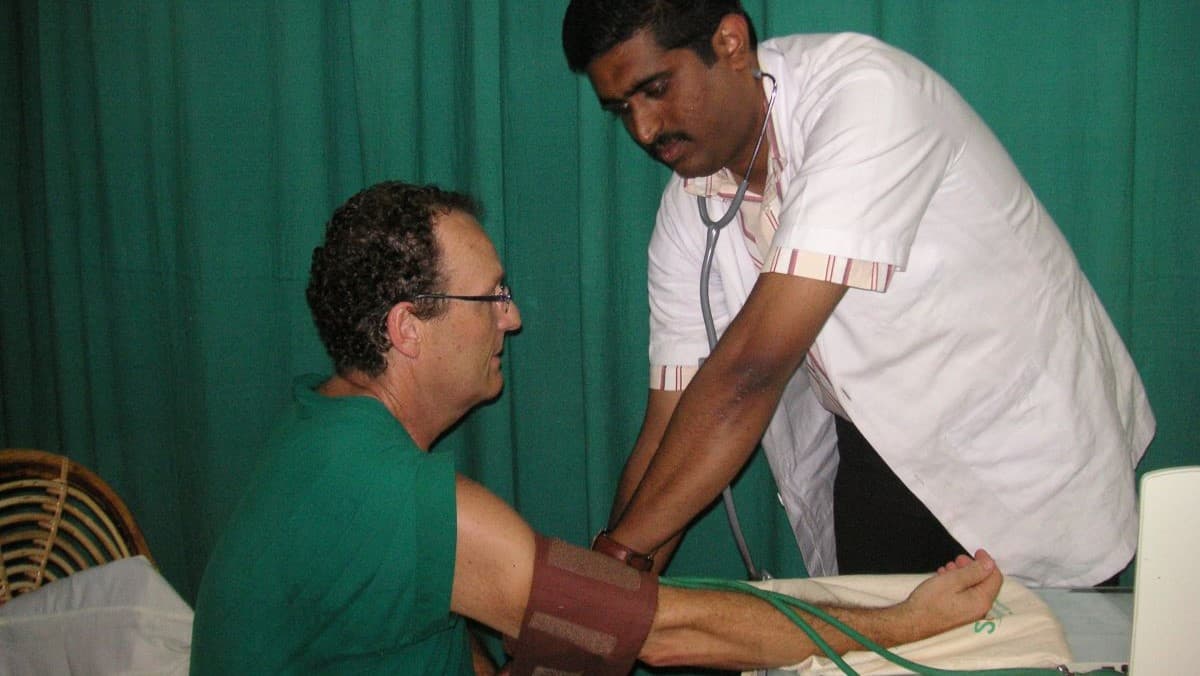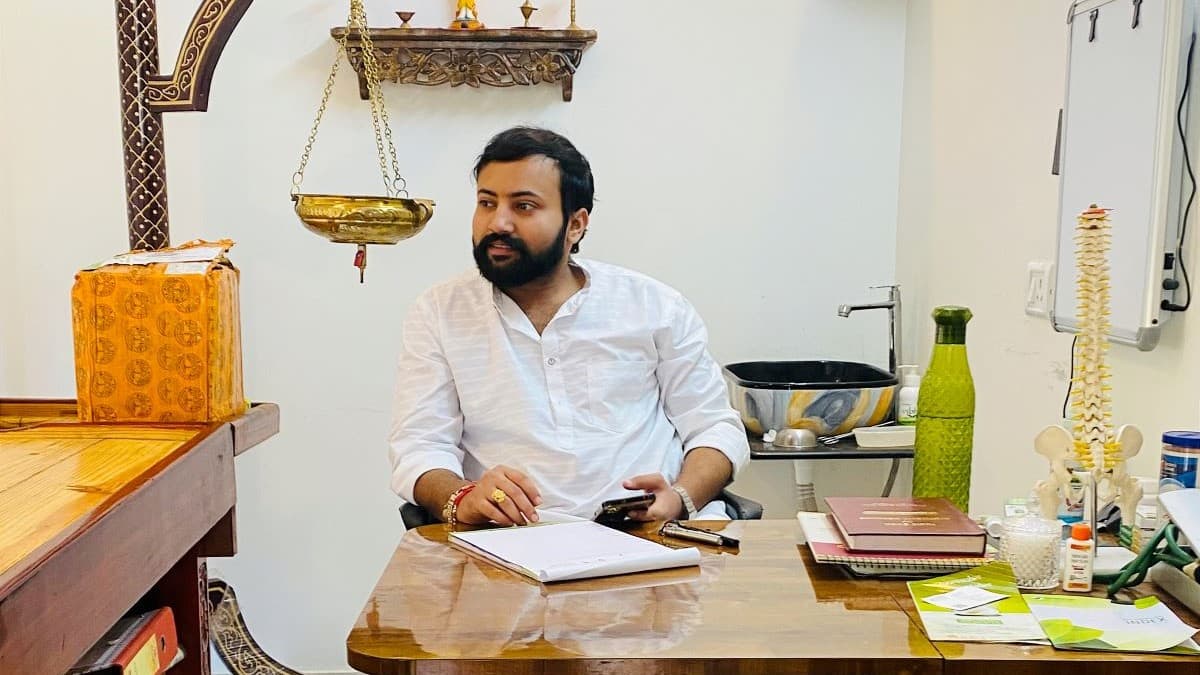Push for AYUSH courses created many colleges, but BAMS, BHMS, BSMS graduates struggle to find jobs
Musab Qazi | June 27, 2025 | 01:08 PM IST | 5 mins read
Despite Rs 4,895 crore spent on National AYUSH Mission, ayurveda, homeopathy graduates face job shortages, turn to allopathy

When he finished high school a decade ago, Mrunal Kolhatkar wanted to do something for the nation. His first choice was becoming an army doctor. But when the Nagpur-resident failed to get into the Armed Forces Medical College at Pune, he opted to study Bachelor of Ayurvedic Medicine and Surgery (BAMS) at a local college. Determined to practice the indigenous medicine system, he also did a course on panchkarma, procedures deployed to detoxify bodies. Even when his batchmates chose to practice the more lucrative modern medicines after graduation, he stuck to his ‘pathy’.
While Kolhatkar has been running his Ayurveda clinic in the city for the last five years, and drawing immense satisfaction out of it, there are moments of doubt too. He gets a limited but steady stream of patients, but knows he’ll earn more if he branches out to ‘allopathy’. In fact, he worked as a contractual medical officer at a primary healthcare centre (PHC) near Nagpur but returned to focus on his area of expertise.
Kolhatkar's experience reflects the predicament of thousands studying the traditional medicine systems, including Ayurveda, homeopathy, Unani, Siddha, naturopathy and Sowa Rigpa. Even as the central government pours funds into these healthcare streams, they are yet to offer viable career paths to their proponents. The majority of graduates continue to chase the limited opportunities in public healthcare units, which largely adhere to modern medicine, while others set up private practice, where their chosen discipline takes a back seat.
 Mrunal Kolhatkar at his Nagpur clinic. (Image: By special arrangement)
Mrunal Kolhatkar at his Nagpur clinic. (Image: By special arrangement)
AYUSH Courses: Schemes and funds
After coming to power in 2014, the BJP-led central government has persistently focused on promoting and strengthening the ancient medicinal and wellness practices, particularly Ayurveda and yoga, projecting them as the nation’s unique offerings to the world at large and part of its ‘soft power’. Even accused of peddling ‘pseudoscience’, the government converted the department of Indian systems of medicine and homeopathy (ISM&H) under the health ministry into a full-fledged ministry named ‘AYUSH’.
It has since launched a number of programmes aimed at improving education, research and care in traditional systems. Between the financial year 2014-15 and 2022-23, the state and central governments have combined spent Rs 4,895 crore under the National Ayush Mission, the overarching programme to fund AYUSH healthcare and education.
As of February last year, the scheme’s accomplishments include setting up of 137 integrated Ayush hospitals, 13 Ayush educational institutes and upgrading more than 100 institutes. Around 12,500 Ayush health and wellness centers have also been created.
In a speech last year, the prime minister Narendra Modi had stated that 7.5 lakh registered Ayush practitioners are contributing to the nation’s healthcare. “Immense opportunities are being created for Ayush practitioners,” he had claimed.
However, the picture on the ground isn't exactly rosy. For example, in Maharashtra, one of the biggest impacts of the centre’s AYUSH thrust was the proliferation of new colleges. However, most of the new private institutes are short on patient flow and experienced teachers. With inadequate knowledge and clinical training, the students have little fealty towards their discipline.
Also read Integrated AYUSH colleges to be set up in every division of UP: CM Yogi Adityanath
Few AYUSH healthcare centres
According to Anwar Siddiqui, one of Kolhatkar’s teachers and an Ayurveda practitioner, the reason for the trend is simple: the state doesn't have many Ayush healthcare centres. Citing the example of Kerala, where he also studied panchkarma, Siddiqui says that Maharashtra needs a network of government-run Ayush facilities parallel to the existing ones to popularise traditional medicines and absorb the growing count of graduates. “Once people in villages start visiting these centres, the acceptance for traditional systems will grow,” he said.
T Komalavalli, principal of the Government Siddha Medical College at Palayamkottai, Tamil Nadu, also found siddha graduates in the state struggling for employment. “Recently, only 26 government posts were advertised when the 18 siddha medical colleges in the state produced 1,500 graduates every year. There are no opportunities available. The graduates are doing private practice, she said, adding, “If the centre helps us, it would be great.”
Also read Allied health sciences, paramedical courses being plagued by fake ‘councils’ running across states
Shailaja U, principal of Shri Dharmasthala Manjunatheshwara College of Ayurveda and Hospital in Hassan, Karnataka, concurred that the various government schemes around Ayush haven't translated into any significant improvement in the students’ employment prospects. She, however, said that more avenues have opened up in the private sector, thanks to the changing perception around traditional medicine.
P Rammanohar, research director at Amrita Centre for Advanced Research in Ayurveda (ĀCĀRA), School of Ayurveda, Amritapuri, pointed out that Ayush graduates have a better chance of employment in government schemes now and more generous funding has opened up opportunities in research.
“On the other hand,” he continued, “the problem of job market saturation has not been overcome, and many posts are contractual and underpaid. Private practice is perceived to be risky and opted for only when there is good mentoring, brand association and infrastructure support. There is a preference to practice in integrative or urban wellness settings, private sector opportunities are not attractive in rural areas. Entrepreneurship cells established by the ministry are in the early phases of implementation. In the prevailing circumstances, government jobs are preferred to private employment for job security."
Also read NCH relaxes teacher norms for PG departments in homeopathy colleges
Traditional and modern medicine: ‘Mixopathy’
For Shailaja, integration of traditional and modern medicine is the way forward. “Everyone can practice their own pathy. But there can be a scenario where acute ailments are treated by allopathy while chronic diseases are addressed through traditional systems,” she said.
While several institutes around the country have started experimenting with the ‘integrated’ approach – the centre recently announced an integrated MBBS-BAMS programme at at the Jawaharlal Institute of Postgraduate Medical Education and Research (JIPMER), Puducherry – medicos have scoffed at these ‘mixopathy’ initiatives. The Indian Medical Association (IMA), in a statement about the proposed JIPMER course, said that “unscientific” mixing of various systems of medicines will not benefit doctors or patients.
Jamal Akhtar, the director of Unani services at Uttar Pradesh, however, remains upbeat about the job prospects of new graduates. He suggests that the new institutes such as the National Institute of Unani Medicine’s (NIUM) Ghaziabad campus, creation of health and wellness centres and more people embracing traditional medicines after COVID-19 has opened up new avenues for AYUSH professionals.
“Unani graduates who specialise in new subjects such as anatomy, physiology and ENT, can start practicing while those studying older courses can join academia,” he said.
Underscoring the improved research and entrepreneurship opportunities, he said, “Growing up, we knew of only three manufacturers of Unani medicine. Now there are thousands of them,” he said.
If you want to share your experience at work, talk about hiring trends or discuss internships, write to us at theworkplace@careers360.com. To know more about The Workplace itself, here's a handy note: Let’s talk work…
Follow us for the latest education news on colleges and universities, admission, courses, exams, research, education policies, study abroad and more..
To get in touch, write to us at news@careers360.com.
Next Story
]Despite BASLP courses’ 100% placement record, India needs 10 times the number of audiologists it has
BASLP is one of the emerging allied health science courses, but with just 2,500 students graduating yearly for India’s 63 million with hearing loss, experts call for better promotion and more awareness
Shradha Chettri